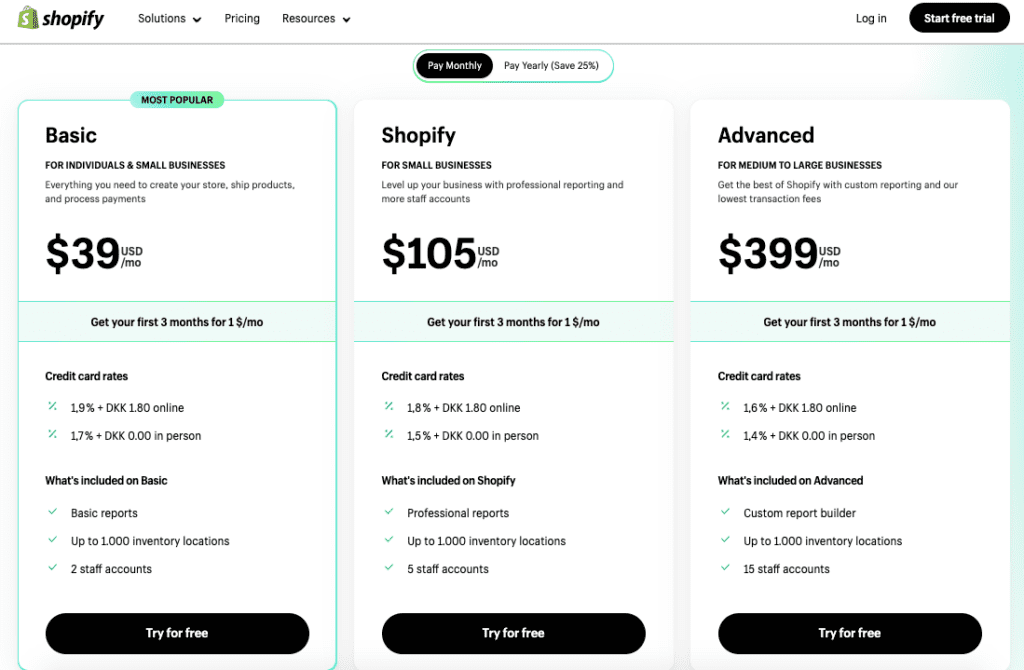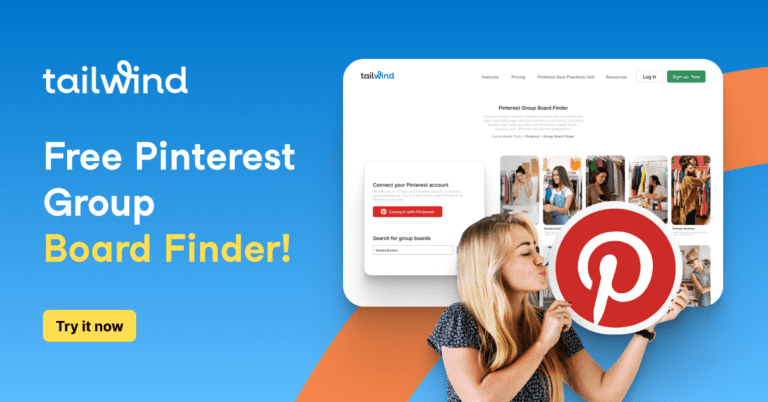
Shopify is the ecommerce platform of choice for over 4 million online stores worldwide for a good reason: it was developed for small business owners to put together a robust, scalable online store with plenty of built-in apps and features without having to spend a fortune to do so.
It’s regarded as the best ecommerce platform for small businesses thanks to its comprehensive list of features, scalability and customization options, reasonable pricing plans, and round-the-clock customer support.
Want to know if Shopify is right for you? You’ve come to the right place — this article will take a deep dive into Shopify and why it’s the #1 ecommerce business platform out there in the market today.
What are the Benefits of Shopify for Small Businesses?
Shopify is the leading website builder with approximately 38% of the market share. It’s a platform dedicated to creating ecommerce websites, allowing any individual to build their very own ecommerce store from scratch.
One of the leading reasons why Shopify is the platform of choice is because literally anyone can just build an online store without a lot of technical skills required, without needing to hire a team, and without outrageous capital outlay. Shopify is one of the fastest and most cost-effective ways to build an ecommerce site, making it an attractive choice for ecommerce.
All you need is an idea, a product to sell, and an internet connection, and voila – you can get your own Shopify store up and running right away.
With an ecosystem of over 8,000 apps (and counting), useful ecommerce features like inventory management and shipping aids, and suitable pricing plans, Shopify is a highly scalable all-in-one ecommerce platform for online stores of all sizes.
Here are more reasons why Shopify is perfect for small businesses:
User-friendly interface
Shopify has a sleek intuitive user-friendly interface that makes setting up an online store easy, even for complete beginners. It’s easy for online store owners to manage inventory, add product descriptions and images, and sort product inventory into collections.
One thing’s for sure: its section-based editor is easy to use and helps keep your online store pages well-organized and properly laid out despite not being as flexible as other ecommerce platforms which often feature a drag-and-drop editor (e.g. Wix).
Affordability and scalability
Every online store – regardless of size – can leverage the power of Shopify. The ecommerce platform offers flexible Shopify plans for every budget with its Starter, Basic, Shopify and Advanced subscription plans. Shopify offers a subscription tier that grows with your business and scales to your ecommerce business requirements with added features when needed.
Let’s take a look at each:

Shopify Starter plan
The Shopify Starter plan is perfect for ecommerce business owners that sell through social media, SMS, WhatsApp, Telegram, and email — literally anywhere you might want to share links to a product. The $5/month plan allows you to create a Starter store and sell online with minimal time and effort. Shopify Starter also enables you to sell physical items through Shopify POS and fast, secure transactions with Shopify Checkout.
The Starter plan is a great option for entrepreneurs who are ready to sell a working product without the requisite tech savvy and without getting overloaded with Shopify’s robust features.
Basic Shopify plan
The Basic Shopify plan offers tremendous value for small businesses with low monthly sales volumes. This pricing plan allows you to manage orders, sales, products, and customer data. You can launch and personalize an ecommerce site without splurging on a premium website builder with Shopify Basic. The basic Shopify plan offers up to 20 customizable themes for greater personalization options. With Shopify offering a 3-day trial with a $1/month promo for the first three months, it’s a great plan to introduce yourself to the platform and gain exposure to more exclusive features than the Starter plan.
The Basic Shopify plan allows up to two additional staff accounts, four reporting locations, and basic reporting functionality. However, it lacks more advanced features like ecommerce automation.

Shopify plan
The standard Shopify plan basically offers a greater depth of reporting tools and granular details regarding customer insights and sales data. The standard Shopify plan allows you to incorporate search engine optimization for global audiences and localize your site for foreign markets. Not surprisingly, this pricing plan is most suited for growing small to medium-sized businesses looking to expand to foreign markets.
Advanced Shopify plan
The Advanced plan features even more targeted, more specialized reporting tools while offering even lower transaction fees and credit card charges than the standard Shopify plan. You can create a variety of specialized reports from scratch using the Advanced plan’s custom report builder. Moreover, Shopify Advanced enables third-party integration with a logistics/shipping provider to provide accurate shipping rates for your international customers while offering them various shipping options.
Advanced Shopify is the best pricing plan for larger retailers with a more substantial global footprint and customer base. However, it might be prohibitively expensive and complex for beginning ecommerce business owners.
Security and reliability
Shopify has demonstrated remarkable reliability with a 99.9% uptime for all its major services across regions over the past three months. Moreover, all Shopify subscription plans offer a high degree of security with the platform itself handling potential security threats, running automatic updates, and meeting the regulatory requirements governing online transactions.
For instance, Shopify plans include Secure Sockets Layer (SSL) security, encrypting information transmitted between your ecommerce site and your customers. This ensures sensitive customer data and personal information remains protected from potential threats. Additionally, all Shopify stores feature Level 1 PCI-DSS (Payment Card Industry Data Security Standard) compliance by default, so you can focus on selling online right away while all the data remains secure!
Extensive customization capabilities and themes
Shopify offers superior customization options and a variety of themes to help ecommerce businesses personalize their sites to reflect their brand and its values. Shopify offers over 150 themes to choose from, ranging from free to premium options.
All Shopify themes are designed for mobile responsiveness, automatically adjusting to fit mobile device screens. Moreover, Shopify themes are sleek, modern, and aesthetically pleasing. This allows ecommerce brands to create websites aligned with their brand identity, with customization options available for storefronts, layouts, and additional features.
Integrated payment gateways
Shopify is built for ecommerce, with a myriad of payment processing options and currencies. Entrepreneurs can sell online right away with Shopify Payments and receive payments through credit cards, fiat, popular e-wallets, and major cryptocurrencies. There are also plenty of third-party payment providers that Shopify users can select on the platform.
Shopify App Store
Shopify is home to over 8,000 apps, many of which scale up, customize the functionality, and improve the performance of your online store as necessary. Many apps are free or offer trial versions, but some may require a monthly payment for premium apps and features.
For instance, you can add greater functionality to your ecommerce site by using email marketing tools, improve store design, and add new sections with the vast selection of apps and extensions on the Shopify App Store.
24/7 customer support
Need a bit of guidance? Shopify offers a wide array of help channels where you can receive support and assistance depending on your preference.
From the comprehensive Help Center to direct live chat and phone support, entrepreneurs have 24/7 access available starting from the lowest price tier.
Shopify Review: Limitations and Concerns
Shopify isn’t without its drawbacks. Here are some of the ecommerce platform’s limitations:
- Total monthly charges/hidden costs. While small businesses and medium-sized businesses will find reasonable subscription plans, paying for apps, plugins, and extensions can get expensive – especially if you’re starting out.
- Migration issues. If you ever plan on switching from Shopify to a new ecommerce platform, be prepared for a potentially complicated migration process. Shopify locks users into the ecosystem by making it difficult for them to transition to other ecommerce platforms, disincentivizing them to switch to other providers. While this is a standard occurrence across ecommerce platforms, it’s still worth noting.
- Heavy dependence on apps. Shopify offers a diverse selection of apps, but it can be tedious to have to keep app subscriptions updated and in order, and to see to it that the apps aren’t causing issues with your site’s performance. Too many apps can slow down or render your site unusable.
- Limited blogging capabilities. Shopify offers a solid, if unspectacular, blogging interface, which is more than one can say about other ecommerce platforms (as most simply don’t offer it). However, it pales in comparison to WordPress or other blogging focused platforms.
Alternatives to Shopify for Small Businesses
Every ecommerce business is different. That’s why we’ve listed some of the best Shopify alternatives to consider below.
Wix eCommerce
Wix, a website builder, offers an ecommerce solution in the form of Wix eCommerce. This Shopify alternative is available at lower price points than Shopify, starting at $10/month with its Light plan to $149/month to its Business Elite plan. Wix also features a robust suite of sales tools comparable to Shopify. While it lacks the scalability to handle larger stores, Wix can be a solid Shopify alternative for branding-focused online stores.
BigCommerce
BigCommerce is another popular alternative to Shopify, especially for larger businesses and retailers. It’s also ideal for companies that need bespoke solutions. BigCommerce is generally more used by companies that possess greater technical know-how and financial resources, both of which are required when building a customizable online store using the ecommerce platform. With its focus on built-in selling features, BigCommerce is less app-focused as Shopify, but its slant towards bigger companies makes it more difficult to use.
BigCommerce also supports international ecommerce, multichannel selling across social platforms, and third party marketplace platforms. BigCommerce’s plans range from $29/month to $299/month, billed annually.
WooCommerce
WooCommerce is an open-source ecommerce solution created for WordPress. WordPress is a website builder offering entrepreneurs the option to add the WooCommerce extension for them to sell products online.
Since WooCommerce is open source, it’s fully customizable to your whims and desires if you have the web development knowledge to do so. WooCommerce features a rich, diverse set of third-party integrations for entrepreneurs who wish to add more depth and functionality to their online stores, making it a highly flexible ecommerce platform to work with. WooCommerce is free in principle, but you may need to pay extra for premium features.
The Final Word: Is Shopify the Best Ecommerce Platform for Small Businesses?
Shopify ranks as one of the best ecommerce platforms in the market today, scoring consistently high marks for its robust sales features, ease of use, and design.
Thanks to its comprehensive app store, flexible pricing plans catering to every budget, and remarkable features, it’s a highly scalable ecommerce platform ideal for newbies and experienced online sellers of all shapes and sizes.
If you’re just making your first steps into ecommerce, by all means, explore Shopify’s free trial or Starter plan to begin. You can even try other ecommerce platforms to see and feel the difference and find the right “fit.”
However, you can’t go wrong with investing in a Shopify subscription if you’re looking for a supremely flexible, scalable ecommerce solution with the ability to adapt as your brand grows.





